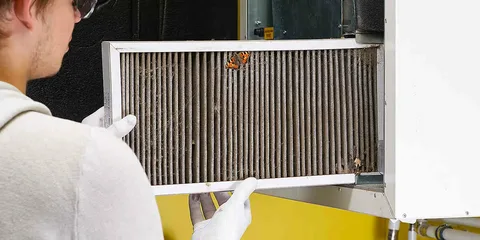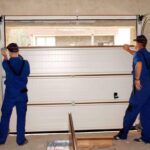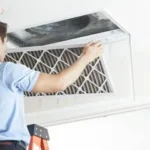Every time you dry your laundry, your dryer collects lint, dust, and fabric fibers that need a clear pathway to escape. If that pathway gets clogged, your dryer has to work harder, and the risks go beyond just longer drying times. Homeowners often underestimate how dangerous neglecting this chore can be. So, what really happens if you don’t Dryer Vent Cleaning Philadelphia?
Why Does Regular Dryer Vent Care Matter?
A neglected dryer vent isn’t just a small inconvenience—it’s a real safety hazard. When lint builds up, it creates a fire risk. Combine that with the hot airflow, heat, and clothes tumbling inside, and you have the perfect storm for an accident. Beyond safety, a dirty vent makes your dryer use more energy, leading to higher utility bills and faster equipment wear. Regular cleaning helps you avoid costly repair services, duct replacements, or dryer hose fixes in the long run.
What Common Problems Can Arise?
If you let your dryer vent go unchecked, you’ll face issues sooner than you think. Some of the most frequent problems include:
- Clogged ducts: Lint and dust block the pathway, slowing down air circulation.
- Longer drying cycles: Clothes stay damp, wasting electricity and time.
- Overheating dryers: Poor ventilation forces the dryer to run hotter than normal.
- Excess lint around the wall outlet or outside vent: Clear evidence of blockage.
- Stronger musty odors: Damp clothes combined with lint buildup create unpleasant smells.
- Increased fire risk: Blocked vents, obstructed pipes, and lint accumulation can ignite when exposed to heat.
When you notice any of these, it’s time to check your dryer vent immediately.
What Are the Key Benefits of Timely Cleaning?
Proper dryer vent cleaning brings several advantages. First, it ensures your system works efficiently, meaning shorter drying times and less energy consumption. Second, it extends the life of your dryer by reducing strain on internal parts. Third, it minimizes hazards linked to clogged vents, ducts, and blockage issues. Finally, it creates a cleaner, safer laundry environment. As one experienced technician explains: “A dryer vent full of lint is like a chimney packed with debris—sooner or later, it will cause damage. Routine cleaning is the best way to stay ahead of disasters.”
What Is the Role of the Right Tools?
Professional cleaning services use specialized equipment designed to clear even the toughest blockages. This is where knowing what tools are used for dryer vent cleaning Philadelphia becomes important. From vacuum systems and vent blowers to rotary brushes and flexible rods, experts rely on these tools to reach deep inside the ducts. While DIY kits can help for minor maintenance, they often don’t provide a full cleaning. Hiring a handyman or certified vent cleaner ensures the job is done thoroughly, reducing risks of clogs and hidden buildup.
What Does Dryer Vent Cleaning Cost?
Here’s a breakdown of typical dryer vent cleaning expenses in Philadelphia:
| Service Type | Average Price Range |
|---|---|
| Basic vent cleaning | $90 – $150 |
| Full duct and pipe cleaning | $120 – $250 |
| Vent and hose replacement | $150 – $300 |
| Emergency same-day service | $200 – $400 |
| DIY kit (basic cleaning tools) | $25 – $50 |
Disclaimer: Prices vary based on duct length, blockage severity, and service provider.
What Key Features Should You Consider?
When evaluating cleaning or repair services, keep these features in mind:
- Thorough cleaning kits that include rods, brushes, and vacuums.
- Flexible ducts or rigid pipes that allow efficient airflow.
- Proper vent covers to block pests and outside debris.
- Dryer hose clamps and connectors for secure attachment.
- Energy efficiency upgrades such as sealed venting systems to lower costs.
How Can Safety Be Maintained?
Safety should be your top priority. Avoid makeshift homemade hacks that may cause more harm than good. Always:
- Schedule routine inspections with a professional.
- Keep the outside vent cover clean and unobstructed.
- Never use flammable materials or the wrong tape for vent connections.
- Make sure your dryer isn’t pushed too close to the wall, which can crimp the ducts.
- If you notice your dryer getting unusually hot, unplug it and call a service provider.
Are Emergency Services Available?
Yes, many local providers offer 24/7 emergency cleaning and repair. These services are vital if you experience sudden blockages, your dryer stops working, or you smell burning lint. Emergency visits may cost more, but they prevent serious hazards and restore safe operation quickly.
FAQs
Can I clean my vent with a vacuum?
Yes, but only for surface lint; deeper clogs need professional tools.
How often should vents be cleaned?
At least once a year, more if you do heavy laundry.
Do dryer vent cleaning kits work?
They help, but they aren’t as effective as pro tools.
Why is lint dangerous?
It’s highly flammable and builds up fast in vents.
Can clogged vents damage clothes?
Yes, heat buildup can shrink or burn fabrics.
What are signs of blocked ducts?
Damp laundry, strong odors, and excess lint near the vent.
How do professionals clean vents?
Using rotary brushes, blowers, and vacuum systems.
Is DIY vent cleaning safe?
It’s fine for maintenance but risky for full unclogging.
Can emergency cleaning fix overheating dryers?
Yes, but replacing damaged parts may also be necessary.
Conclusion
Ignoring dryer vent cleaning is never worth the risk. From clogged ducts and blocked vents to costly repairs, the consequences can be serious. Regular maintenance not only saves money but also ensures your home stays safe from fire hazards. If you’re in Philadelphia and haven’t had your vent serviced lately, now is the time. Don’t wait for warning signs—call a trusted professional today and schedule your cleaning. Your safety, savings, and peace of mind depend on it.
Read more: leaf blower for dryer vent cleaning



